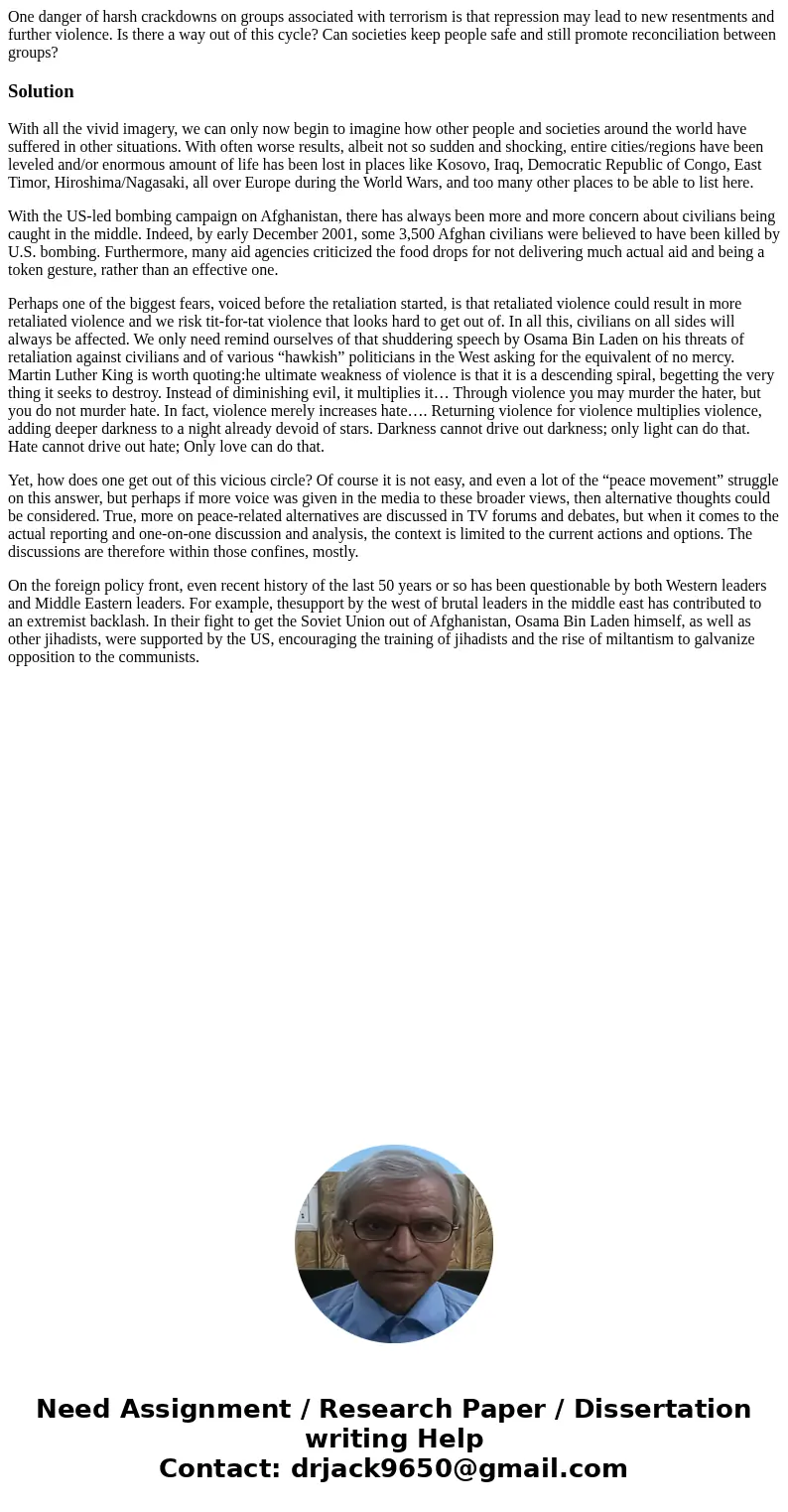One danger of harsh crackdowns on groups associated with ter
One danger of harsh crackdowns on groups associated with terrorism is that repression may lead to new resentments and further violence. Is there a way out of this cycle? Can societies keep people safe and still promote reconciliation between groups?
Solution
With all the vivid imagery, we can only now begin to imagine how other people and societies around the world have suffered in other situations. With often worse results, albeit not so sudden and shocking, entire cities/regions have been leveled and/or enormous amount of life has been lost in places like Kosovo, Iraq, Democratic Republic of Congo, East Timor, Hiroshima/Nagasaki, all over Europe during the World Wars, and too many other places to be able to list here.
With the US-led bombing campaign on Afghanistan, there has always been more and more concern about civilians being caught in the middle. Indeed, by early December 2001, some 3,500 Afghan civilians were believed to have been killed by U.S. bombing. Furthermore, many aid agencies criticized the food drops for not delivering much actual aid and being a token gesture, rather than an effective one.
Perhaps one of the biggest fears, voiced before the retaliation started, is that retaliated violence could result in more retaliated violence and we risk tit-for-tat violence that looks hard to get out of. In all this, civilians on all sides will always be affected. We only need remind ourselves of that shuddering speech by Osama Bin Laden on his threats of retaliation against civilians and of various “hawkish” politicians in the West asking for the equivalent of no mercy. Martin Luther King is worth quoting:he ultimate weakness of violence is that it is a descending spiral, begetting the very thing it seeks to destroy. Instead of diminishing evil, it multiplies it… Through violence you may murder the hater, but you do not murder hate. In fact, violence merely increases hate…. Returning violence for violence multiplies violence, adding deeper darkness to a night already devoid of stars. Darkness cannot drive out darkness; only light can do that. Hate cannot drive out hate; Only love can do that.
Yet, how does one get out of this vicious circle? Of course it is not easy, and even a lot of the “peace movement” struggle on this answer, but perhaps if more voice was given in the media to these broader views, then alternative thoughts could be considered. True, more on peace-related alternatives are discussed in TV forums and debates, but when it comes to the actual reporting and one-on-one discussion and analysis, the context is limited to the current actions and options. The discussions are therefore within those confines, mostly.
On the foreign policy front, even recent history of the last 50 years or so has been questionable by both Western leaders and Middle Eastern leaders. For example, thesupport by the west of brutal leaders in the middle east has contributed to an extremist backlash. In their fight to get the Soviet Union out of Afghanistan, Osama Bin Laden himself, as well as other jihadists, were supported by the US, encouraging the training of jihadists and the rise of miltantism to galvanize opposition to the communists.

 Homework Sourse
Homework Sourse